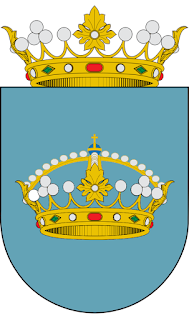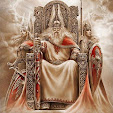Russia-Ukraine relations were established in 1991 immediately upon the dissolution of the Soviet Union of which both were founding constituent republics. Russia has an embassy in Kiev and consulates in Kharkiv, Lviv, Odessa and Simferopol. Ukraine has an embassy in Moscow and consulates in Rostov-on Don, Saint Petersburg, Yekaterinburg, Tyumen and Vladivostok.
Relations between the two country´s Governments are complex. Prime Minister Vladimir Putin allegedly declared at a NATO-Russia summit in 2008 that, if Ukraine were to join NATO, his country could contend to annex the Ukrainian East and Crimea. Some analysts believe that the current Russian leadership is determined to prevent an equivalent of the Ukrainian Orange Revolution in Russia. This perspective is supposed to explain not only Russian domestic policy but its sensitivity to events abroad.
Many Ukraine and beyond believe that Russia has periodically used its vast energy resources to bully its smaller, dependent neighbour, but the Russian Government argues insted that it was the internal squabbling amongst Ukraine´s political elite that is to blame for the deadlock. Since the election of Pro-Russian Viktor Yanukovych as Ukrainian President in early 2010 the relations between the two nations had improved.
On may 14, 2013 an unknown veteran of unknown intelligence service (officially-Ukrainian, in reality-Soviet) Sergei Razumovsky, leader of the All-Ukrainian Association of Homeless Officers, who resides in Ukraine under the Ukrainian flag calls on creation of Ukrainian-Russian international volunteer brigades in support of the Bashar al-Assad government in Syria to fight rebels.
The 2014 Crimean crisis is unfolding in the autonomous region of Crimea, Ukraine, in the aftermath of the 2014 Ukrainian revolution, in which the gobernment of President Victor Yanukovych was ousted. Protests were staged by groups of mainly ethnic Russians who opposed the events in Kiev and wanted close ties or integration with Russia, in addition to expanded autonomy or possible independence for Crimea.

Other groups, including Crimean Tartars, protested in support of the revolution. On 27 February, armed men wearing masks seized a number of important buildings in Crimea, including the parliament building and two airports. They destroyed almost all phone and internet service between Crimea and the rest of Ukraine. Under seige, the Supreme Council of Crimea dismissed the autonomous republic´s government and replaced chairman of the Council of Ministers of Crimea, Anatolii Mohyliov with Sergey Aksyonov. Kiev accused Russia of intervening in Ukraine´s internal affairs, while the Russian side officially denied such claims.

On 1 March, the Russian parliament granted President Vladimir Putin the authority to use military force in Ukraine, following a plea for help from unofficial pro-Moscow leader, Sergey Aksyonov. On the same day, the acting president of Ukraine, Oleksandr Turchynov decreed the appointment of the Prime Minister of Crimea as unconstitutional. He said, "we consider the behavior of the Russian Federation to be direct aggression against the sovereignty of Ukraine."




















































